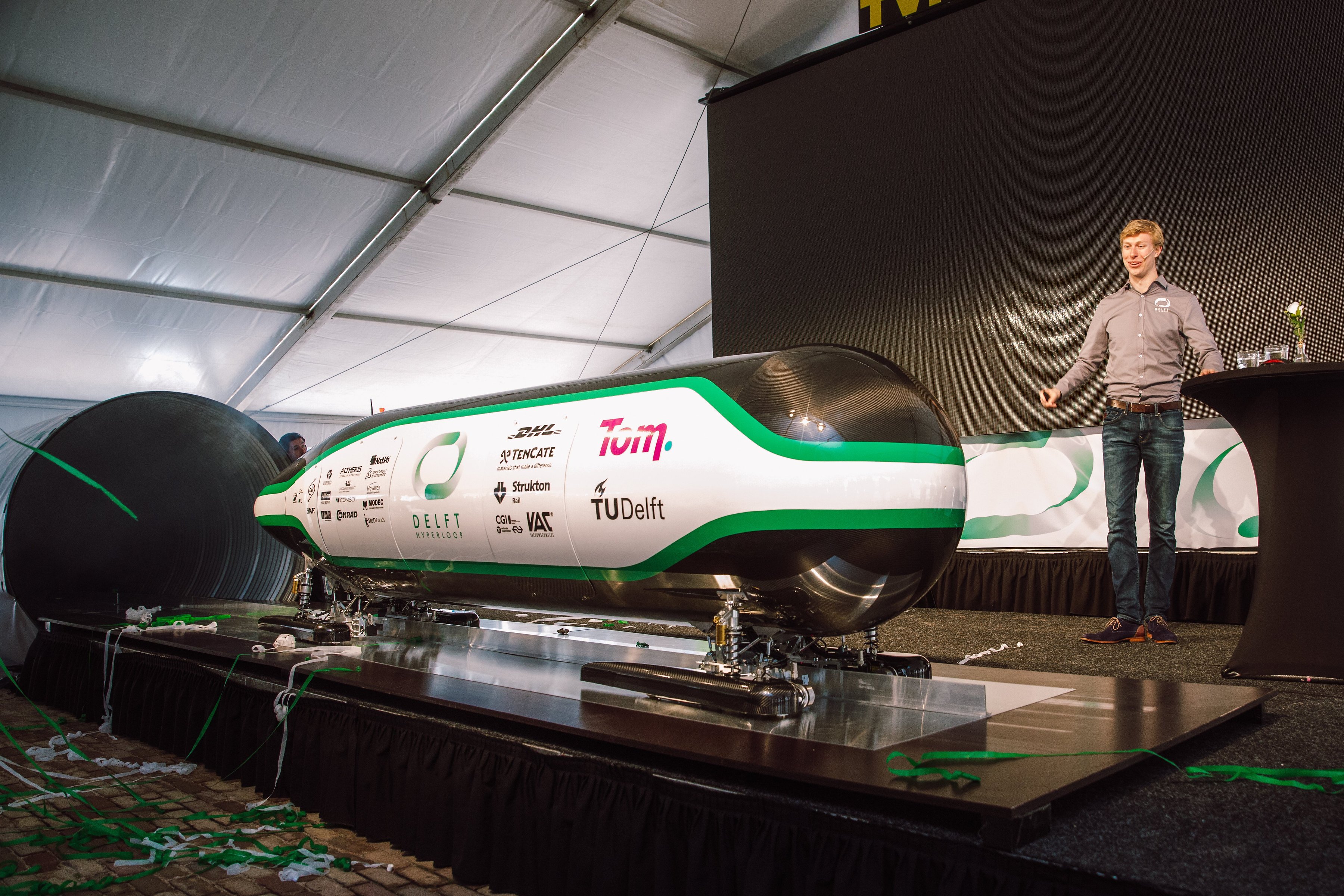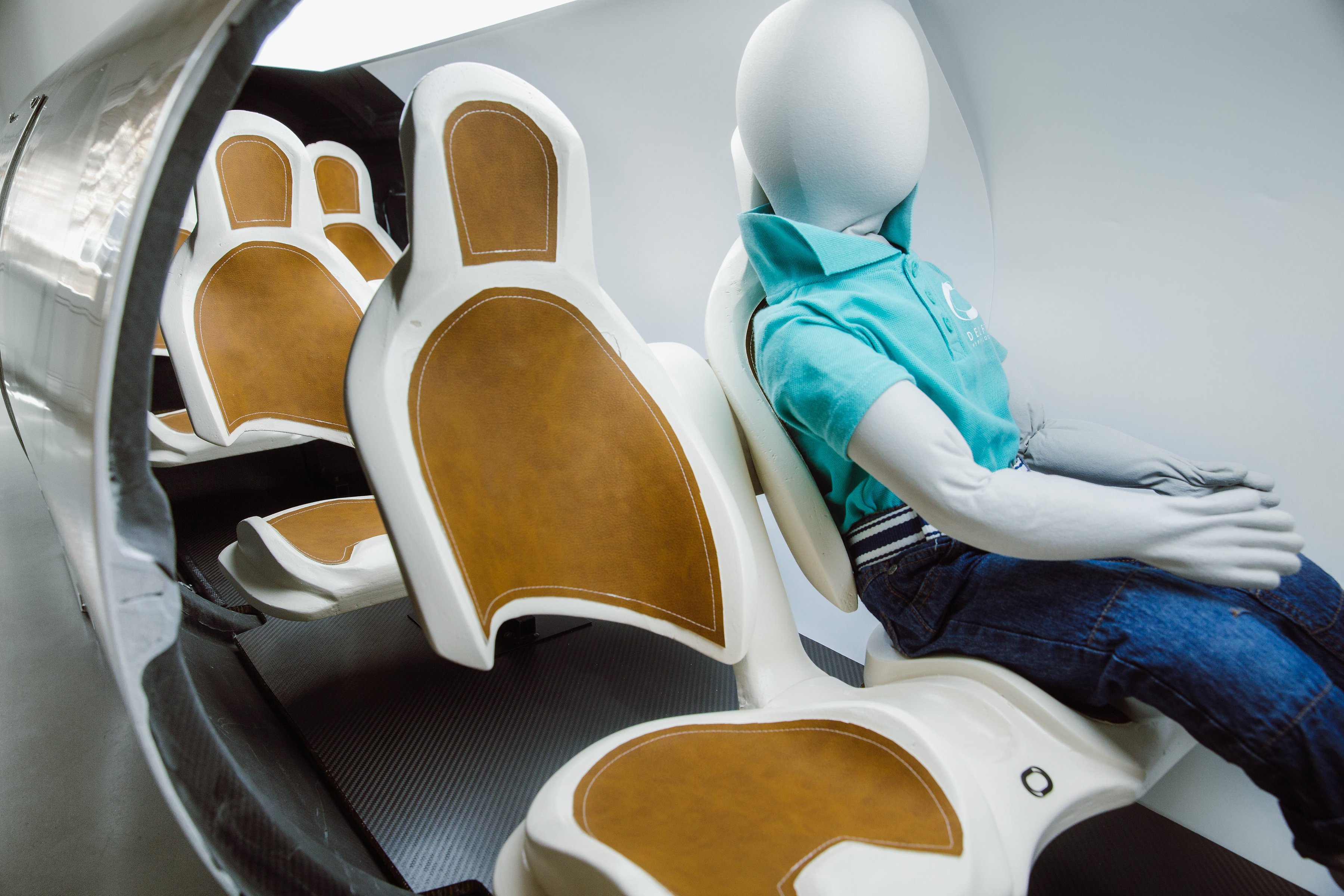On January 30 in Hawthorne, California, Tim Houter learned that he and his team had won Elon Musk’s prestigious SpaceX Hyperloop Pod Competition. “That was a great moment, an explosion of emotions, all of the hard work of one and a half year paid off,” Houter thought when he heard the news.
Competitors were asked to demonstrate how fast a vehicle could travel in a vacuum tunnel. Several high-profile universities, including MIT, competed in four categories: safety, design, speed and total experience. The Technical University of Munich designed the fastest pod overall, but Houter’s team, from the Delft University of Technology in the Netherlands, won first prize due to excellence in all four categories.
Videos by VICE
The contest, organized by SpaceX, kicked off in June 2015. Out of 2,000 applicants, only 30 teams were allowed to actually build their prototypes. In the end, only three teams had a run in the vacuum tube. “In every way, [the run] went exactly as we visualized it, and it’s actually a nice result,” said Tim Houter.
Despite the fierce competition, he said, the atmosphere was friendly because all the teams had worked so hard to be there. If there were any problems, other teams were happy to help. “Everyone was extremely excited to have our first runs in this tube and to see actually see it working,” he said.
Team captain Houter has background in mechanical engineering. Previously, he worked on the Formula Student Team for the Delft University of Technology, which designed electric race cars for another competition. Together with a few friends from that contest, he set up the Delft Hyperloop team.

Houter reveals his pod design for an audience in the Netherlands. Image: Joost Weddepohl
The Hyperloop is a small, light-weight train that travels in a vacuum tube. “There is no air resistance. That makes it possible to travel faster, more efficiently and more cost-effectively than the current transportation system,” explained Houter. His team’s train managed to reach 56 miles per hour over 0.75 miles. With a more powerful accelerator and a larger tube, it could potentially go up to 745 miles per hour. It took Houter and his team just a year to build the prototype, which could be scaled up to carry between 32 and 100 people per car.
At 328 pounds, the Delft Hyperloop pod was extremely light compared to the other designs. “That’s because during our design phase we took a step back to really end up with the most scalable Hyperloop—not only fast, but also efficient, safe, and reliable, so we integrated a lot of parts,” said Houter. The pod’s lightness is in part due to the undercarriage, which integrated a levitation system, stabilization system, and safety system into just one part.
“That made us end up with such a light-weight capsule, which was also reliable,” explained Houter. The capsule was made from carbon fiber, known both for its lightness and strength. Engineers use the fiber whenever these two aspects are crucial, like in race cars, jetliners and fighter planes.

A dummy sits inside the Delft pod prototype. Image: Joost Weddepohl
Houter is optimistic about the possibility of his design’s implementation. “If you looked at all the benefits of the Hyperloop system compared to the current transportation systems, it’s way more efficient, it’s a lot faster, and it’s a lot more cost-effective than the current transportation system. The implementation of the Hyperloop in general would be more convenient than the implementation of High Speed Rail for example,” he said. Houter imagines the Hyperloop being built in the next decade.
“If you have seen that we have realized this high-scale prototype in just one year, it should be possible to have the technology fully proven between now and around four years, and a full Hyperloop train up and running in 10 years,” he predicted.
Meanwhile, Hyperloop project at the Delft University of Technology will continue to participate in future competitions with a new team. In the summer of 2017, the SpaceX Hyperloop Pod Competition II will take place, but this time, it will have just one goal: maximum speed.
For his part, Houter and his team have now set up a business to develop Hyperloop networks. “With four of the founders of Delft Hyperloop we now have launched our follow-up company Hardt,” Houter told me. “With this company, it is our dream and ambition to develop and realize hyperloop networks.”
Get six of our favorite Motherboard stories every day by signing up for our newsletter .
More
From VICE
-

-

LOS ANGELES, CALIFORNIA – NOVEMBER 14: Timothée Chalamet seen at a Special Screening of A24's "Marty Supreme" at Academy Museum of Motion Pictures on November 14, 2025 in Los Angeles, California. (Photo by Eric Charbonneau/A24 via Getty Images) -

Photo: Gandee Vasan / Getty Images -

Photo: duncan1890 / Getty Images
